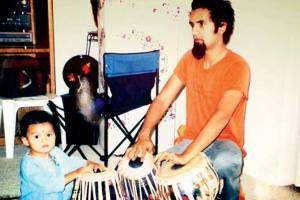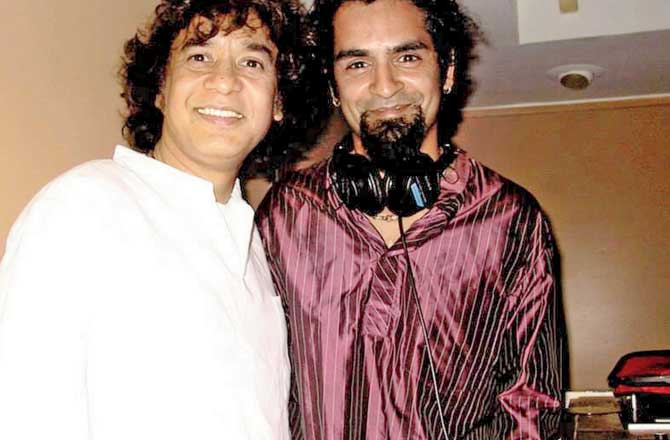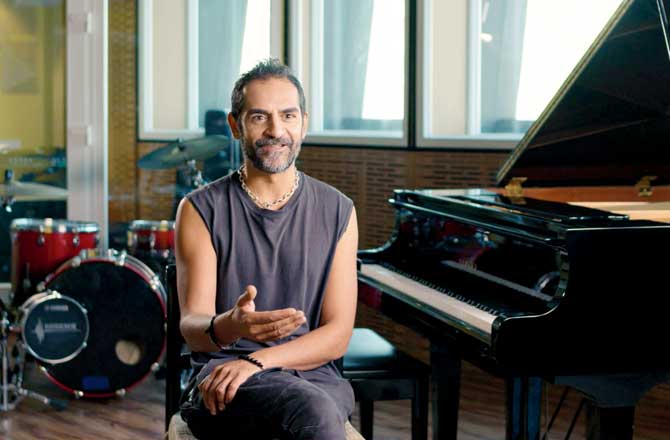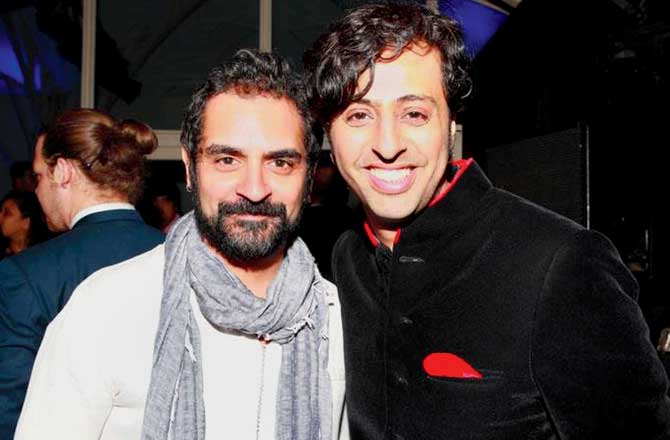A new documentary charts the journey of indie music pioneer Karsh Kale, who walks the thin line between being a New York musician and an Indian artiste

Kale calls the birth of his daughter, Milan, a turning point in his life
Rock Disco Tabla begins with musician Karsh Kale walking his dog in a snowstorm in New York, where he has been a resident since the 1970s. He talks about growing up in the suburb of Queens, surrounded by people of varied ethnicities and nationalities, each one's culture seeping into the neighbour's seamlessly. He remembers taking road trips with his Maharashtrian parents, listening to music as varied as the Top 40s, lavani, Indian classical and the Beatles. Later, as he lives in East Village, he is struck by the energy that engulfs him, in a city full of artistes, all busy trying to create something. "It was the right environment. New York is unique in that way—it brings out the best in everyone, no matter what you do," Kale says in an interview from Goa, where he is currently put up.

Kale fell in love with the tabla after he saw Zakir Hussain perform at Columbia University
In the year the music industry has seen huge losses due to pandemic-induced restrictions, and musicians themselves wonder what the future holds, watching a documentary about an extraordinary musician could be the ticket to get re-inspired. It's a testament to not letting go of your roots, believing in your talent, and to never stop creating. Produced by Bollywood music composers, Salim-Sulaiman, and directed by Shakti Hasija, maker of docu Shukranallah, the winner at the San Francisco Film Festival, is seeking an OTT platform to get it picked up. "Salim always said, 'this is the day and age, when people don't just listen to music, they watch music', and that stayed with me. For us, with an artiste like Karsh, who has such a great repertoire, there should be a visual to go with it. We wanted to tell the story behind the music. For example, after 9/11, Karsh, the son of Indian immigrants, questioned his place in America, and he said he had to express what he was feeling as a brown-skin person. So, he created the album, Liberation in 2003," says Hasija. For Salim Merchant, Karsh's story needed to be told because, "he brings a very different frequency to indie music—his rock influences combined with the tabla, it has a great connection to our roots and traditions. He will empower anyone who has the fervour to follow their path, and let their experiences shape them."

Karsh Kale grew up in Queens, New York, to Maharashtrian parents, and much of his music is influenced by the cosmopolitan nature of the city, where he says “everyone is from somewhere else”
When you learn a little bit about Kale's early years, it easier to make sense of who he became—a pioneer of the Asian underground scene, who, much like the melting pot he grew up in, made music by mixing genres as opposite as Indian classical and electronica. "People needed a new identity, so they related to our sound, even if they didn't understand the language. Everyone in New York is from somewhere else. They are Indian or Mexican or Italian, and then, they become New Yorkers. This gives rise to this whole multi-cultural space, where you are always being introduced to something new."

Kale with Salim Merchant, who produced the documentary
Not just that, Kale also innovated, taking his tabla playing to another level by creating the "electric tabla". "I built the electric tabla because I needed it heard in a rock band. I never gave up the drums, but added all these other elements to my palette," says Kale, whose fascination for the Indian percussion instrument grew when he saw Ustad Zakir Hussain (who he has collaborated with often) perform at Columbia University in New York. Along with releasing many world music albums, and collaborating with artistes as varied as Anoushka Shankar and Chinese singer Sa Ding Ding, Kale also won Bollywood's most prominent commercial trophy, the Filmfare Award last year for Gully Boy.

Shakti Hasija
Hasija thinks musicians can learn from Kale's journey because he is a great collaborator. "Collaboration can bind people and nations and cultures, and the end result is always beautiful. His life has always been about inclusiveness."
Kale himself was apprehensive about the project at first. He is shy, and says, "my journey is not yet over". But he was also aware why it was important to highlight what he has achieved. "[In this last year] I stopped running and took notice," he says. He hopes like him, this will make great music emerge from creators. "The way I address music has now changed. It's not just for entertainment; it's medicine."
Keep scrolling to read more news
Catch up on all the latest Mumbai news, crime news, current affairs, and a complete guide from food to things to do and events across Mumbai. Also download the new mid-day Android and iOS apps to get latest updates.
Mid-Day is now on Telegram. Click here to join our channel (@middayinfomedialtd) and stay updated with the latest news
 Subscribe today by clicking the link and stay updated with the latest news!" Click here!
Subscribe today by clicking the link and stay updated with the latest news!" Click here!









